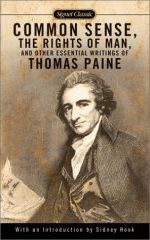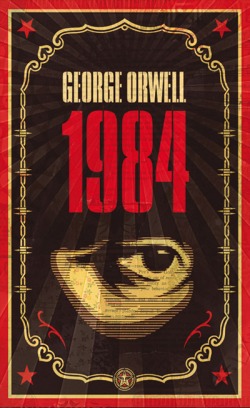
If, from the more wretched parts of the old world, we look at those which are in an advanced stage of improvement, we still find the greedy hand of government thrusting itself into every corner and crevice of industry, and grasping the spoil of the multitude. Invention is continually exercised, to furnish new pretenses for revenues and taxation. It watches prosperity as its prey and permits none to escape without tribute. Thomas Paine, Rights of Man, 1791
This day, June 8th marks the 200 year anniversary of Thomas Paine. Paine is much more than a pampheteer, he was a writer, a philosopher, and an amazing revolutionary figure of the 18th century.
Paine was born in Great Britain on January 29, 1737 until he was 27 when he moved to the American Colonies and took part in the Revolutionary War. He wrote Common Sense in 1776 which he argued for the rights of the Colonies:
Society in every state is a blessing, but government, even in its best state, is but a necessary evil; in its worst state an intolerable one; for when we suffer or are exposed to the same miseries by a government, which we might expect in a country without government, our calamity is heightened by reflecting that we furnish the means by which we suffer. Later, Paine wrote The Rights of Man in 1791 which advocated Enlightenment ideals and supported the French Revolution. Although neither a French speaker or a French national, because of his literary contributions, Paine was elected as a member of the 1792 French Convention. While in France, Paine also wrote The Age of Reason which introduces the concept of deism and advocated free-thinking which did later cause controversy back in the States: It is necessary to the happiness of man, that he be mentally faithful to himself. Infidelity does not consist in believing, or in disbelieving; it consists in professing to believe what he does not believe. However, Napoleon Bonaparte's dictatorship disillusioned Paine and caused him to end his long stay in France. Paine later returned to America on the request of Thomas Jefferson. Paine died in Greenwhich Village, New York at the age of 72. Later William Cabbot tried to have Paine's remains moved to Great Britain but were lost so the final resting place of Paine is unknown. However Paine's home in New Rochelle, New York known as Thomas Paine's Cottage is still around today
Review by Rainey
WAR IS PEACE
FREEDOM IS SLAVERY
IGNORANCE IS STRENGTH
On June 8th 1949, sixty years ago George Orwell published his last novel, Nineteen Eight-Four. While sick with tuberculosis Orwell wrote this book not as a criticism of socialism as most people think. Indeed Orwell himself was a proud member of British Labour Party. Instead, Orwell creates a society of a totalitarian regime ruled by a shady government as a criticism of Communism and Fascism.
As with all his other novels, Orwell creates a picture of society that for some is disturbing and others find prophetic. In a futuristic London, lives Winston Smith a civil servant who works for "BIG BROTHER". It is Winston's job to falisify records and poltical literature but as his life slowly unravels, Winston joins the resistance movement in a hopeless but idealistic plot to take down his invasive and corrupt government.
Now I know most of us read this book when we were in high school but has anyone read it recently? It's amazing how much of the language Orwell uses in Nineteen Eight-Four such as "Big Brother" and "double think" has endured and has become part of daily lives. Orwell visions of what could be possible with a government that is not held in check and of disinterested masses is a fear we all face today as much as ever.
Perhaps moreso now than in the fast because of all the technology we have today it is easy to believe that the truth is so accessable. But how much do we really know? Perhaps Orwell's real legacy to us is that he encouraged everyone to think and question. So in honor of Orwell's memory, let's continue to not only appreciate Nineteen Eighty-Four as a masterpiece of literature but also remember the lesson behind the novel: To continue to be aware and to think critically.
Reviewed by Rainey


 RSS Feed
RSS Feed